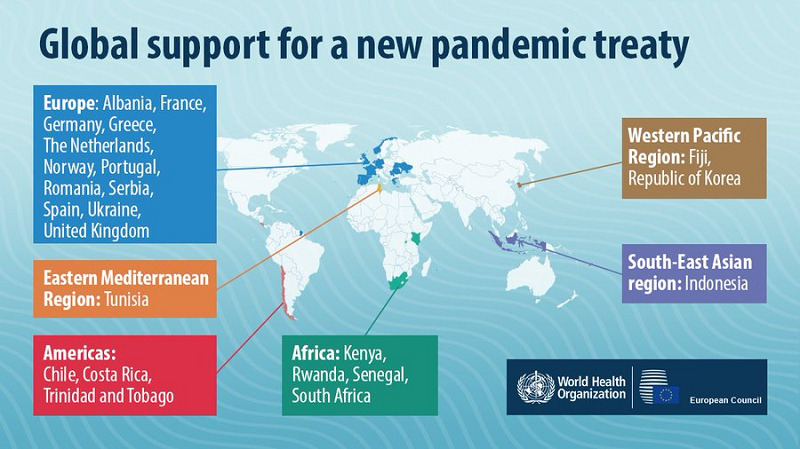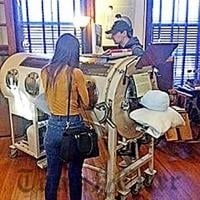Business travel has not recovered as quickly as leisure travel.
Google has told its senior managers to limit employee travel to only “business-critical” trips, according to a leaked internal email seen by The Information. No more off-site team or social functions, and no more in-person meetings when a virtual option is available. Going forward, Google executives were told, there will be a “high bar” for what is now considered critical.
Last month, Microsoft asked employees to cut back on business travel and company events in an effort to keep costs under control, The Wall Street Journal reported.
Taken alone, these are simply tales of corporations cutting costs in inflationary times. But viewed through a macro lens, Google’s new policy is emblematic of a travel trend that could pose a long-term challenge for airlines.
All airline passengers are not created equal. Traditionally, business travelers not only flew more frequently but paid higher fares, making a big contribution to airlines’ bottom lines.
But business travel has not recovered from the pandemic as robustly as leisure travel, remaining up to 35% below 2019 levels, according to some industry estimates.
MORE FROM FORBES How Covid Changed Business Travel Forever By Suzanne Rowan Kelleher
On an earnings call in late July, Southwest Airlines chief commercial officer Andrew Watterson said that while business travel started to recover this spring, it is skewed toward smaller businesses, the government and education.
“Our biggest corporations are the laggards – particularly banking, consulting and technology – that used to be among our top travelers are now on the bottom,” he said, adding that the Southwest’s larger corporate accounts all have employees who travel, but not as many, and not as often.
Last month, a report by the Global Business Travel Association (GBTA) scaled back its projections for a full recovery in business travel spending by 2026 — not 2024 as previously estimated — citing a series of reasons including inflation, energy prices, supply chain challenges. , lack of workers and regional developments.
The report found that total global business travel spending reached $697 billion in 2021, just 5.5% above the 2020 pandemic low. -pandemic levels.
“The factors affecting many industries around the world are also anticipated to impact the global recovery of business travel in 2025. The predicted result is that we will come close, but we will not meet and exceed pre-pandemic levels of 2019 to 2026,” said Suzanne. Neufang, CEO of the GBTA.
Follow me on LinkedIn. Check out my website. Send me safe tips.
What does it mean that coronaviruses are zoonotic?
The coronaviruses are zoonotic, meaning they are transmitted between animals and people. Detailed investigations found that SARS-CoV was transmitted from civet cats to humans and MERS-CoV from dromedary camels to humans. Read also : As Food Prices Rise, US Food Lines Get Longer. Several known coronaviruses are circulating in animals that have not yet infected humans.
What are the known coronaviruses that can infect people? The human coronavirus is capable of causing illnesses ranging from the common cold to more severe illnesses such as Middle East respiratory syndrome (MERS, fatality rate ~34%). SARS-CoV-2 is the seventh coronavirus known to infect humans, following 229E, NL63, OC43, HKU1, MERS-CoV, and the original SARS-CoV.
Is the coronavirus disease (COVID-19) a zoonotic virus?
The virus that causes COVID-19, SARS-CoV-2, is a zoonotic virus, meaning it can spread between people and animals.
Can pets or other animals get COVID-19 from people?
If you are sick with COVID-19 (either suspected or confirmed by a test), you should avoid contact with your pets and other animals, as you would with people. On the same subject : Derek Lewis, president of multicultural operations and equity development at PepsiCo, discusses his company’s diversity initiatives. Contact includes petting, snuggling, kissing, licking, sharing food, and sleeping in the same bed.
Can animals spread the coronavirus disease?
There is no evidence that animals play a significant role in the spread of SARS-CoV-2, the virus that causes COVID-19, to people. Read also : Taiwan Covid Travel Restrictions: Visa-Free Entry Resumed With 3-Day Quarantine. There have been a few reports of infected mammals spreading the virus to people during close contact, but this is rare.
Is COVID-19 vaccination still necessary, even after getting infected with the virus and recovering?
Evidence is growing that post-infection vaccination enhances protection and further reduces the risk of re-infection. Therefore, the COVID-19 vaccination is generally recommended for the eligible population, including those who have recovered from the disease.
Should people be vaccinated if they have previously been infected with COVID-19? · All COVID-19 vaccines currently available in the United States are effective in protecting against SARS-CoV-2 infection. Getting a COVID-19 vaccine gives most people some protection against COVID-19, even in people who are already sick with the disease.
How long can you test positive for COVID-19 after having it?
The CDC previously said that people can test positive up to three months after getting an infection. Arwady said some may test at home as they prepare to end their isolation.
How many times can a person get COVID-19?
You may have thought it was like chicken pox – if you’ve had it once, you’re immune forever, and you can get rid of your worries forever. Unfortunately, that is not the case. You can get COVID-19 more than once. Many times, in fact.
Can COVID-19 vaccines protect people against the SARS-CoV-2 virus when it has mutated?
Vaccines against some viral diseases remain effective for many years and provide long-term protection. Others, like the flu vaccine, need to be updated regularly to remain effective. This is because viruses constantly modify when they circulate among people. Many SARS-CoV-2 mutations have no impact on vaccine effectiveness, but some are of concern because of a possible reduction in how well existing vaccines will work. Scientists around the world are carefully monitoring the mutations of the SARS-CoV-2 virus to assess how well the currently available COVID-19 vaccines can protect people against them, and vaccine manufacturers are exploring ways to update vaccines as needed to improve protection as new variants are found. Even with the reduced effectiveness of some COVID-19 vaccines against some of the new variants, the COVID-19 vaccines they are expected to offer some protection from severe forms of the disease.
Do the COVID-19 vaccines work against the new variants? The COVID-19 vaccines used in the United States continue to protect against severe disease, hospitalization, and death from known circulating variants.⯠They may not be as effective at preventing infection from these variants. The CDC will continue to monitor the effectiveness of the vaccine to see what impact, if any, the variants have on how well the COVID-19 vaccines work in real-world conditions.
What does the current COVID-19 vaccine protect against?
In addition to data from clinical trials, evidence from real-world vaccine effectiveness studies shows that the COVID-19 vaccines help protect against COVID-19 infections, with or without symptoms ( asymptomatic infections).
Does the COVID-19 vaccine prevent you from getting the Omicron variant?
Vaccines can protect against severe illness, hospitalization, and death from Omicron. Doctors emphasize that it is important to get vaccinated and get your booster.
Is the COVID-19 vaccine effective against all strains of COVID-19?
The simple answer is yes. At this time, there is no evidence to suggest that these or any other variants of the COVID-19 virus are completely resistant to current vaccines. Vaccination and booster doses reduce the risk of hospitalization and death from COVID-19 infection.



